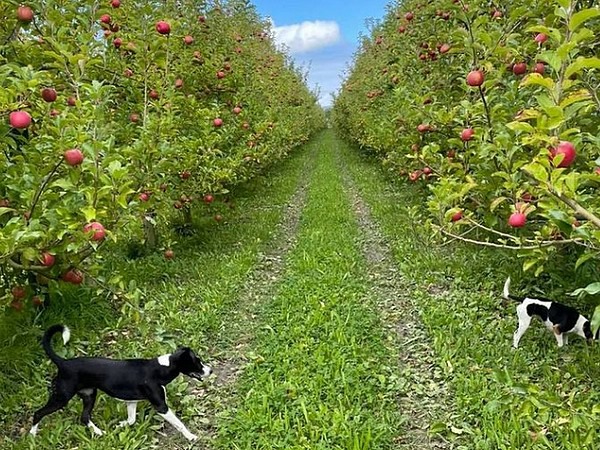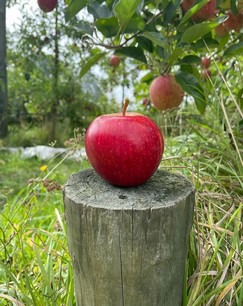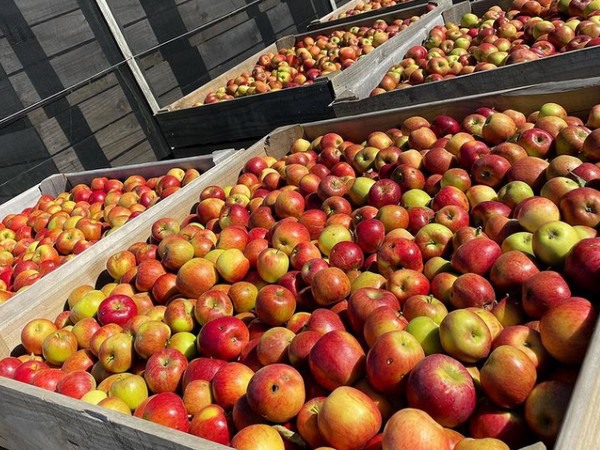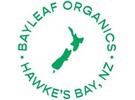A New Zealand apple grower says organic production has become a strong, growing market in recent years, with rewarding advantages - but it is not without its challenges.
Bayleaf Organics, at Haumona on the country's North Island, manages 50 hectares of organic apple orchards. Co-owner Wendy Dowling, who runs the business with her husband Craig, says there is an increasing market of consumers who want to eat nil residue, nutritionally dense food that has been grown in an ethical, environmentally safe system.
"Our main driver for growing organically is human and environmental safety," Mrs Dowling said. "Craig and I both feel very strongly about growing a beautiful crop of food without exposing our staff, our families, or the greater community around us to dangerous, toxic chemicals. We would not be comfortable having staff working day in and day out around chemicals. We live on one of our orchards, with our children and pets. New research is coming out all the time on the long-term health risks of repeated exposure to chemicals. We know our kids can play in the orchard or eat an apple off the tree any day of the year without risking being exposed to anything harmful."

But she admits that organic apple growing is a challenge, as they do not have the full range of options available to us, that conventional growers do to combat all the pests and diseases.
"Our sprays are often weather-based, rather than calendar sprays," she said. "Craig needs to keep a close eye on the weather and fungal spore forecasts and plan the sprays around that. We have to manage proactively - focusing on varieties that grow well in an organic system, prune accordingly, look after the soil so it can provide the trees with the nutrients they need, graze with sheep to reduce fungal litter, and for soil health."
 This year has been a challenging season, producing a smaller volume than predicted, but a good quality crop. Mrs Dowling says there are some blocks that have poor pollination, and blocks that had poor thinning last season, due to labour issues with COVID-19, have shown signs of going biennial bearing.
This year has been a challenging season, producing a smaller volume than predicted, but a good quality crop. Mrs Dowling says there are some blocks that have poor pollination, and blocks that had poor thinning last season, due to labour issues with COVID-19, have shown signs of going biennial bearing.
"Last year we packed around 90,000 cartons and this year, we have reduced our managed area, releasing one leased block, and have thinned our trees harder for larger apple sizes," she said. "We will expect to pack around 50,000 cartons this year, with better targeting of markets and size profiles. Our harvest has also gone really well, despite the heavy rain that the East Coast endured over much of March. Our volumes have also been down on predicted due to a bit of pest damage, and russet - the humid weather over Spring meant slow drying times and some sprays have left russet on particular varieties. All in all, though - the fruit in the bin is fantastic, and we are really proud of it."

The company is in its third season of exporting and about half of the crop is done themselves. This has opened up the opportunity for us to deal directly with Awe Sum Organics in the United States.
"We aim to control as much of our business as is practically possible, from labour recruitment to freight, juice markets, local Farmers' market, to exporting," Mrs Dowling said. "We still use other exporters for sales into Europe, Taiwan and the UK. This year we have increased our local sales into Hawkes Bay, and around NZ. We have a weekly stall at the Hastings Farmers Market every Sunday through the harvest season. We sell our fruit to JJ's Organics, Hawkes Bay Harvest, and Hapi - for their organic juice cleanses. We regularly supply Ceres Organics and Chantal Organics. We have formed a wonderful relationship with a like-minded company called Coral Tree Organics, which makes high-quality Organic Apple Cider Vinegar among other products. We sell them our seconds from the packhouse, and orchard picked juice fruit. It is wonderful to know that our fruit is going into producing such a beautiful health-giving product, produced lovingly by a family-owned and run business like ours."
Bayleaf Organics produces several varieties; Aztec Fuji, Galaxy Gala, Cripps Pink (Lady in Red), Granny Smith, and then some smaller blocks of new varieties. Our season begins mid-Feb with Gala, then is spread relatively nicely through to Cripps Pink which is picked into mid-May.
"We are looking at getting into more of the newer specialised varieties, so we can command a higher price," Mrs Dowling said. "But things have changed a lot in the past 3-5 years because the cost of production has increased dramatically, but the return to the grower has not reflected that at all. But we grow a lot of Cripps Pink and Aztec Fuji, which perform really well in an organic system, as a lot of apples do not, as they get russet and the leaves are sensitive to sulphur. We still have quite a bit of Galaxy, which is our bread and butter and we get quite good money for. Then we are actually planting more Granny Smith because there is a strong market, especially in America, where they prefer the big green apple. We sent our Braeburn to an apple cider vinegar company this year, which is an exciting new idea. This has allowed us to make money from what would have been a non-productive block."
 For more information
For more information
Wendy Dowling
Bayleaf Organics
P: +64 6875 0990
[email protected]
www.bayleaforganics.co.nz
